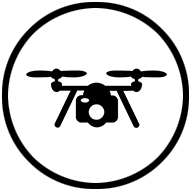EPIC Surveillance Oversight Project
The Surveillance Oversight Project is focused on identifying domestic surveillance issues and advocating for better privacy and civil liberties protections to counter the growing use of surveillance. EPIC seeks to limit the use of technologies that can be used in public surveillance of the masses, including biometrics (e.g. facial recognition), drones and surveillance planes, social media monitoring, and automated license plate readers. EPIC focuses on actions of the Department of Homeland Security, federally funded fusion centers, local police, and companies engaged in mass surveillance.
The Surveillance Oversight Project educates the public and policymakers through the documents we obtain through FOIA litigation. EPIC regularly comments on Department of Homeland Security and other agency administrative rules to highlight the impact of surveillance technologies on individuals and vulnerable communities.
Top News
- EPIC Applauds FTC SpyFone Ban, Urges Similar Remedies in Future Privacy Cases + (Oct. 8, 2021)
- EPIC, Coalition Call on Retailers to Ban Facial Recognition in Stores + (Jul. 14, 2021)
- Competition Executive Order Requires Dept. of Transportation to Address Drone Privacy + (Jul. 9, 2021)
- Maine Becomes First State to Enact Statewide Ban on Face Surveillance + (Jun. 30, 2021)
- 4th Circuit Rules That Baltimore Warrantless Aerial Surveillance Program Violates Fourth Amendment + (Jun. 24, 2021)
- In EPIC Suit, DOJ Identifies 182 Location Data Requests in District of Rhode Island from 2016-2019 + (Jun. 21, 2021)
- European Data Protection Authorities Issue Joint Call for Ban on Facial Recognition Across the EU + (Jun. 21, 2021)
- EPIC Asks D.C. Circuit to Review Decision Endorsing Secrecy of Drone Advisory Committee Working Groups + (Jun. 18, 2021)
- EPIC, Coalition Calls for Surveillance Reforms in Response to DOJ Surveillance of Congress and Reporters + (Jun. 18, 2021)
- After Meeting with EPIC, DC Council Chairman Seeks More Information About DC-Area Facial Recognition System + (Jun. 10, 2021)
- EPIC, Coalition Call for Global Ban on Biometric Recognition Technologies + (Jun. 7, 2021)
- EPIC, Coalition Call for Ban on Law Enforcement Use of Facial Recognition + (Jun. 3, 2021)
- King County, WA Bans Local Government Use of Facial Recognition + (Jun. 2, 2021)
More top news
Face Surveillance
 The increasing capabilities of facial recognition algorithms and the proliferation of photos along with the easy access to these photos by private companies and governments has supercharged the deployment of face surveillance systems. Facial recognition is particularly dangerous because it allows for covert, and even remote identification on a mass scale. EPIC supports a ban on face surveillance.
The increasing capabilities of facial recognition algorithms and the proliferation of photos along with the easy access to these photos by private companies and governments has supercharged the deployment of face surveillance systems. Facial recognition is particularly dangerous because it allows for covert, and even remote identification on a mass scale. EPIC supports a ban on face surveillance.
Aerial Surveillance
 Manned surveillance aircraft and drones are poised to allow the real-time monitoring of entire urban populations. Advances in camera technology and biometric recognition are now used by law enforcement to follow individuals across cities and in crowds. Corporate aerial surveillance is a growing field, and a growing privacy threat. EPIC opposes the use of mass, indiscriminate aerial surveillance.
Manned surveillance aircraft and drones are poised to allow the real-time monitoring of entire urban populations. Advances in camera technology and biometric recognition are now used by law enforcement to follow individuals across cities and in crowds. Corporate aerial surveillance is a growing field, and a growing privacy threat. EPIC opposes the use of mass, indiscriminate aerial surveillance.
Fusion Centers
 Fusion centers are state-run surveillance offices that receive federal funding and Department of Homeland Security staff. These centers are threats to privacy and civil liberties because they are run with minimal oversight, receive personal information from biased sources—including private sector businesses, and engage in unconstitutional surveillance. EPIC calls for an end to federal funding of fusion centers.
Fusion centers are state-run surveillance offices that receive federal funding and Department of Homeland Security staff. These centers are threats to privacy and civil liberties because they are run with minimal oversight, receive personal information from biased sources—including private sector businesses, and engage in unconstitutional surveillance. EPIC calls for an end to federal funding of fusion centers.
Traveler Screening & Border Surveillance
 Travelers, especially air travelers, are subject to screening databases and technologies as well as widespread surveillance of their movements. Similar mass surveillance happens at the border, which is often used as a testing ground for new surveillance technologies. The federal government collects vast amounts of information at airports and land border crossings. EPIC works to limit the use of surveillance technologies against travelers and at the border.
Travelers, especially air travelers, are subject to screening databases and technologies as well as widespread surveillance of their movements. Similar mass surveillance happens at the border, which is often used as a testing ground for new surveillance technologies. The federal government collects vast amounts of information at airports and land border crossings. EPIC works to limit the use of surveillance technologies against travelers and at the border.
Biometrics
 Biometric data collection, particularly for facial recognition and DNA analysis, pose significant threats to privacy. Facial recognition allows for covert or even remote identification on a mass scale without consent. DNA can reveal sensitive health data.
Biometric data collection, particularly for facial recognition and DNA analysis, pose significant threats to privacy. Facial recognition allows for covert or even remote identification on a mass scale without consent. DNA can reveal sensitive health data.
Featured Pages
Amicus
FOIA
Agency Comments
Police Body Cameras
 Police body cameras are meant to combat police abuse and provide a mechanism for accountability of police officers. But, the devices raise serious privacy issues as they point outwards, towards the public capturing our public movements and already law enforcement is looking to expand the uses beyond police accountability by adding facial recognition capabilities.
Police body cameras are meant to combat police abuse and provide a mechanism for accountability of police officers. But, the devices raise serious privacy issues as they point outwards, towards the public capturing our public movements and already law enforcement is looking to expand the uses beyond police accountability by adding facial recognition capabilities.
Featured Pages
- Police Body Cameras: Accountability or Public Surveillance?
- State Law Enforcement Body Camera Policies
Testimony
- EPIC, Hearing on "Body Cameras: Can Technology Increase Protection for Law Enforcement Officers and the Public" before U.S. Senate Subcommittee on Crime and Terrorism Senate Judiciary Committee (May 2015).
Public Surveillance
 Public surveillance takes many forms--from license plate readers gathering data on passing cars, to closed-circuit TVs monitoring every passerby. Advancing technology is eroding the privacy in public we once enjoyed.
Public surveillance takes many forms--from license plate readers gathering data on passing cars, to closed-circuit TVs monitoring every passerby. Advancing technology is eroding the privacy in public we once enjoyed.
Featured Pages
FOIA
- EPIC FOIA - Automated License Plate Readers (FBI)
- EPIC FOIA - Automated License Plate Readers and Border Checkpoint Body Scanners
Additional Resources
Share this page:
Subscribe to the EPIC Alert
The EPIC Alert is a biweekly newsletter highlighting emerging privacy issues.







